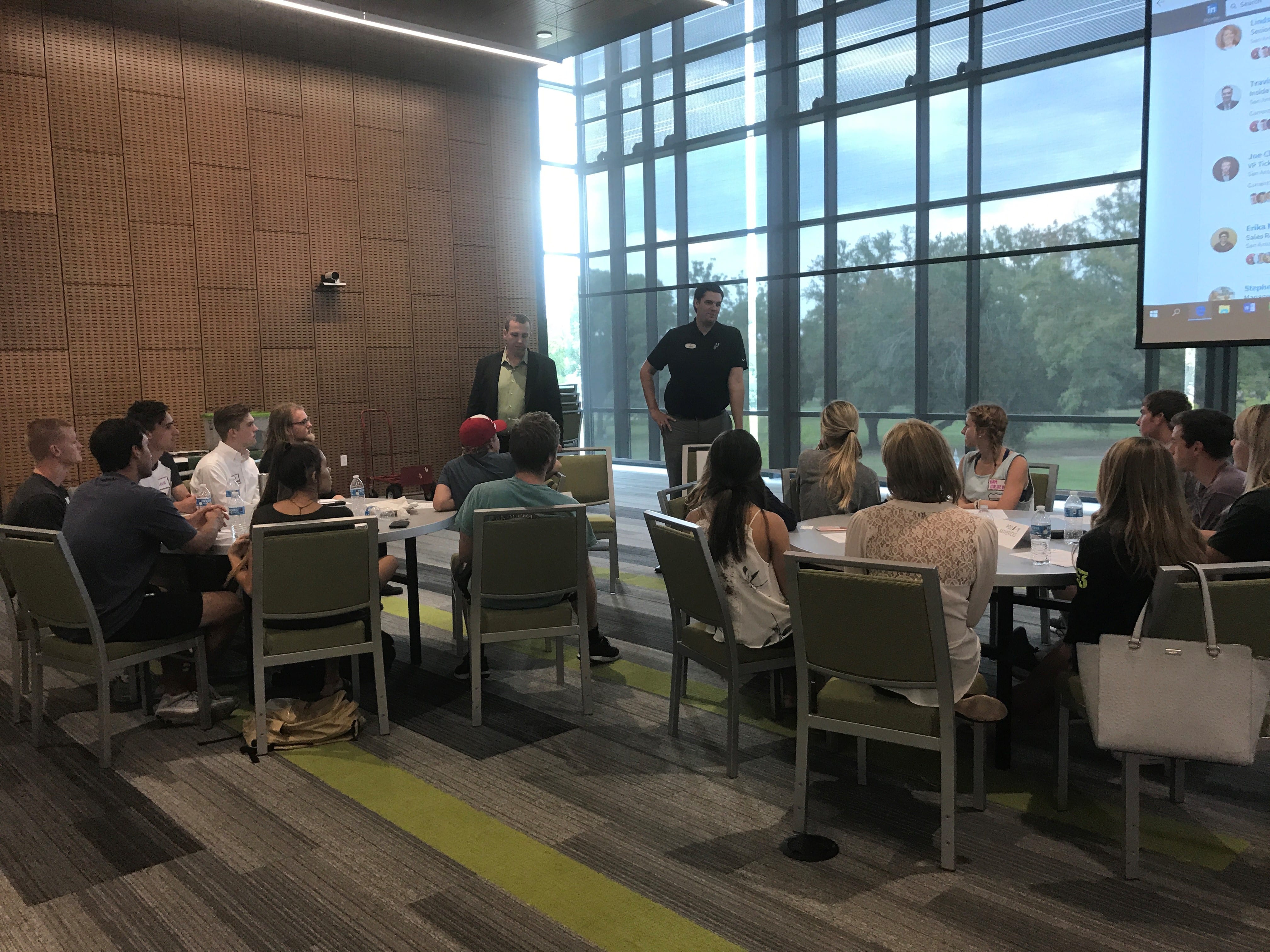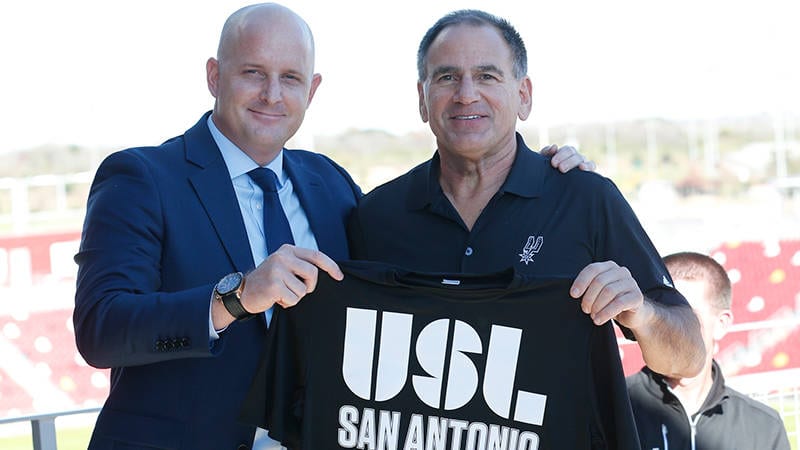by Brad Sherrill – September 2017
What can we learn from the Spurs organization?
The Spurs were the first organization contacted before the S3 program launched in 2004. We often say that the Spurs organization is “Baylor South,” because so many of the 250+ S3 graduates started careers in San Antonio.
Nine members of Spurs Sports & Entertainment (SS&E) engaged in a series of small group panel discussions with over 100 S3 students at the September S3 Club meeting. Among these nine were Joe Clark, Laura Dixon, David Elkins, Justin Wynter and S3 alumni Stephen Gray, Lindsay Beale, Travis Gafford, Ashley Johnson and Erika Moulder.
These professionals discussed how S3 Values play out in day-to-day life in successful careers. 
Take It Personally
Justin Wynter, Manager of Corporate Partnerships for the Austin Spurs, shared a story in support of the S3 Culture tenant to always “take it personally.” Wynter spoke about how he and his associates rose from underachieving to become a top of the league organization. This hard work came to fruition when the team received 8 of 10 year-end NBA G-League awards after receiving zero only a few short years before Justin Wynter and Stephen Gray (S3 2011) decided to take personal responsibility for business performance.
Act with Integrity
Joe Clark, Vice President of Ticket Sales and Service, encouraged students to interview teams and companies. He highlighted the importance of making sure that an organizational culture is strong and a positive fit. Finding those organizations that care and do things the right way is an integral part of experiencing long-term success in the sports industry.
Go the 2nd Mile
Laura Dixon, Head of External Relations, exemplified the broad landscape of positions available across the sports industry. S3 Club members heard about her journey from working on an Olympic bid proposal to her current position where she works to strengthen stakeholder relationships on behalf of Spurs Sports & Entertainment. In going the “2nd mile,” Dixon does a little bit (or a lot) of everything in this role, going beyond the job description people typically associate with the sports industry.
Group Sales Representative Ashley Johnson shared a story of how Sales Representative Erika Moulder’s group were recently given a goal of making five in-person sales appointments for the week. Ashley noticed on the sales board that Erika set 19 appointments, going the second, third, and practically the fourth mile.
Redefine Success & Failures
S3 Club Member Tatum Lowe spoke highly of the insight she gained over the course of the evening. Lowe said she learned, “the idea of redefining our successes and failures . . . focus on the small victories that you achieve every day, before you know it these will add up to major successes.” She was inspired by how visibly passionate SS&E executives, managers and employees are about their careers, exemplified by the core principle of going the 2nd mile, in San Antonio as much as it is in Waco. In fact, they traveled 200 miles each way to freely share their time with S3 students.
How to Choose Among Job Offers
Lindsay Beale, Senior Manager of Group Sales, shared a common theme to the Spurs and S3: Pick your next position based primarily on the character and values of the manager who will directly supervise you. This person plays an integral role in developing your abilities and determining the opportunities for success. When they move up, you’ll have chances to move with them.
Next Up
Our next S3 Club outing with the Texas Rangers is on Tuesday, September 26! We will join Nick Richardson and four more S3 alumni at the Rangers, Taylor Bergstrom, Mike Segoviano, Jeff Brown and Jonah Erbe, as the Rangers take on the Astros from Globe Life Park in Arlington.















